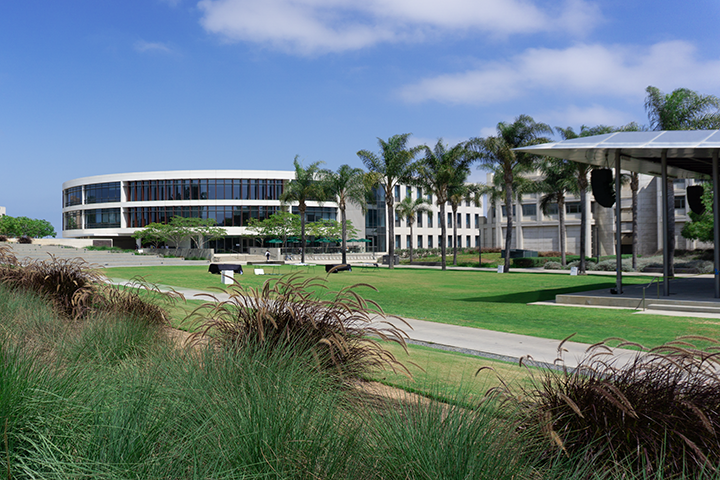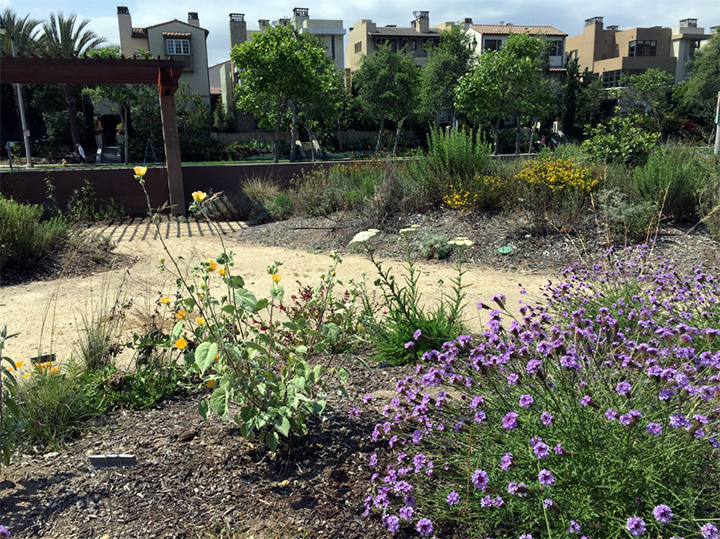Grounds

Why is This Important?
Campus grounds are extremely important in regards to sustainability. By picking plants that require less water, installing features that trap and filter water runoff, planting trees that help sequester carbon, and having learning gardens that can teach the community about the advantages of local urban farming. LMU is actively participating in ways to ensure our grounds are as sustainable as possible, while still looking beautiful. LMU has comprehensive programs with campus gardens, and grounds/landscaping choices that allow the community to learn about and practice sustainable gardening and living.
What is LMU Doing?
Green Waste
LMU recycles 100% of its green waste. Most of the green waste is mulched and composted on-site and utilized in various areas on campus including the LMU campus community garden known as The LIONS Garden. Whatever is not used is diverted by waste hollers to be recycled.
Gardening
Locally grown plants from LA nurseries are used. Environmentally preferred materials and recycling of campus materials is used in campus garden areas to ensure environmental and health friendly infrastructure for growing and learning.

Policies and Procedures
Pest Management
Loyola Marymount University has developed and maintained it's grounds in accordance with an integrated pest management plan that adheres to the four-tiered approach. Management is based off of the standard IPM approach used in the state of California. Before taking any pest control action, Loyola's IPM first sets an action threshold, trying to avoid meaninglessly use of chemicals for pests and take into account environmental conditions. The grounds are examined closely to monitor for pests and identify them accurately for minimal use of pesticides. Through these means, LMU can manage pest damage by the most economical means, and with the least possible hazard to people, property, and the environment.
Irrigation
75% of campus irrigation is reclaimed water. There are 3 retention ponds on campus that filter water out to go back to soil. Permeable pavers are used in certain locations, and decomposed granite is used to allow for infiltration of water.
What Can You Do?
The LIONS Garden, run by the Office of Sustainability, has many ways to get involved. The garden's mission is to address LMU's focus on social and environmental justice by examining issues such as hunger and nutrition through urban gardening. By utilizing bio-intensive gardening methods that maximize crop yields, the LIONS Garden strives to demonstrate how to grow nutritious food with a minimal amount of space. The plants in the garden are all native and attract pollinators.
The garden hosts garden volunteer days, during which any campus member can opt-in to help out in the garden. Check the L.I.O.N.S. Garden page for our gardening schedule.
Campus organizations are invited to "adopt a plot" for them to manage throughout the semesters. To get involved, communicate with one of the following departments/organizations: